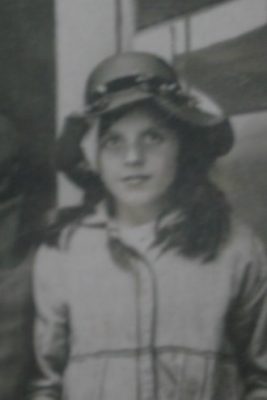Ireland’s Crucible: Easter 1916 Remembered
 We just passed a milestone in Ireland’s history that probably went unnoticed by most. It didn’t escape my notice, and compelled me to display again the Irish flag outside my house, displacing only temporarily the U.S. flag that flies there most of the time.
We just passed a milestone in Ireland’s history that probably went unnoticed by most. It didn’t escape my notice, and compelled me to display again the Irish flag outside my house, displacing only temporarily the U.S. flag that flies there most of the time.
In 1916, Apr. 24 was the day after Easter. Still quiet from the Holy Day, the streets of Dublin did not have their usual bustle when a rag-tag group of men, with rifles shouldered, marched up to the General Post Office on Sackville Street (today O’Connell Street), seized the massive building and on its steps proclaimed Ireland an independent nation. Their leader was a 37-year-old teacher named Padraic Pearse. His dream of freeing Ireland included full awareness that it would likely cost him his life.
Their act that day sparked an almost weeklong battle in Dublin’s streets, pitting some 1,250 rebels against the might of the British Empire, which quickly brought in some 16,000 regular troops, along with 1,000 police of the Royal Irish Constabulary. The tide was quickly turned.
Within days, the rebels were hounded from every position they had seized and had no choice but to surrender. Viewed by most of the people of Dublin as back-stabbing traitors, they were spat upon when they finally capitulated on Saturday, Apr. 29.
Why the adverse reaction? Some 200,000 Irishmen were fighting in the British Army against the Germans in World War I. Almost 50,000 of them would die, and their families at home bore little sympathy for those who would slight their loved ones’ sacrifice.
The toll was fearful. In six days of fighting, 485 people died, including 260 civilians, and much of central Dublin lay in ruins after indiscriminate British shelling of the city center in an effort to flush the rebels out and bring them to bay.
Had the British left things at that, and slapped Pearse and his band into prison, they and their dreams might have been forgotten. But vengeance clouded judgment, and within weeks 16 of the rebels had been executed, their bodies dumped unceremoniously into a lime-filled pit.
New York-born Eamon DeValera, son of an Irish immigrant mother and a Spanish father, was spared this fate only because he was a U.S. citizen. His execution might have forestalled U.S. entry into World War I, a key goal of British foreign policy. Saved from the executioner’s block, “Dev” went on to become Ireland’s leading statesman. His death in 1975 was mourned by millions on both sides of the Atlantic.
Almost overnight, the executions of May 1916 turned reviled dreamers into exalted martyrs, and led to five years of warfare between the Irish and the Empire. It culminated in the creation of the 26-county Irish Free State in 1921.
Peace, however, was short-lived, and Ireland soon devolved into a bitter civil war between Free State supporters, who believed half a loaf was better than none, and those who would settle for nothing less than the 32-county Republic that Pearse had proclaimed in 1916. The Irish Civil War raged two more years, and cost more in lives than the struggle against the British ever had. Some would argue it is not finished yet.

From our last column
Last week’s column addressed the tragic fate of Florence Marie McGowan, my aunt, at 13 years old to the 1918 flu pandemic. Several readers wondered why a picture wasn’t run. Unfortunately, space did not allow for this.
That is corrected this week, with thanks to the editor! For those of you who may have missed the article, please access the online edition of The Examiner to view a poignant memoir of a past that has become all too familiar in the present: https://theexaminernews.com/archives/westchester/West.Examiner4-21-20.pdf (article on page 22).
Pleasantville resident Brian McGowan is a second-, third- and fifth-generation Irish-American/Canadian and author of two books: “Love, Son John,” about World War II, and “Thunder at Noon,” on the Battle of Waterloo. Both are available at Amazon.com. Reach him at brian.m.mcgowan1952@gmail.com. To see more on “things Irish,” follow his blog, “Rethinking Irish,” at https://www.rethinkingirish.com.

